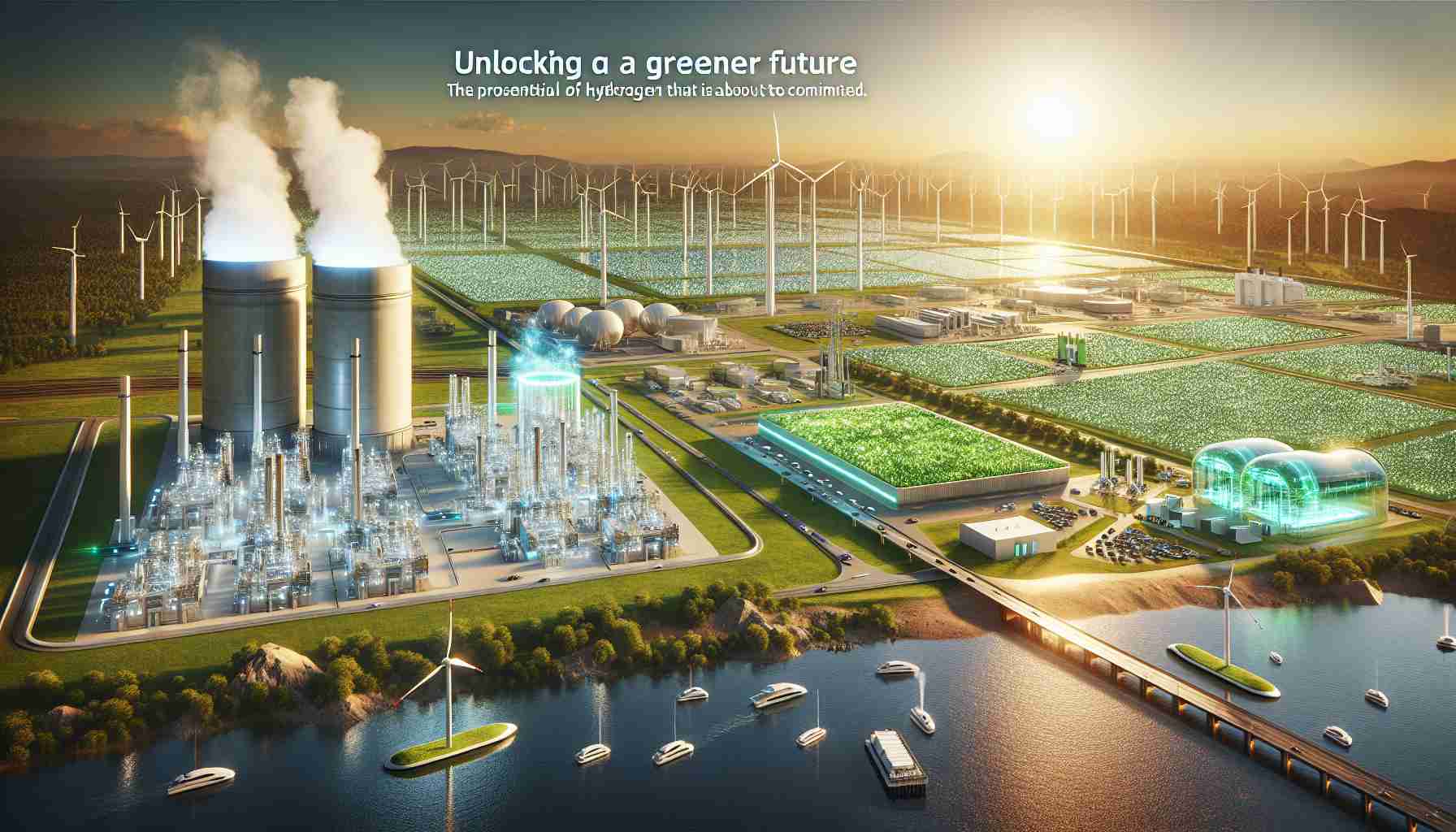The Next Step in Sustainable Energy
A groundbreaking hydrogen production facility is set to transform the Fos-sur-Mer region, aiming to foster a renewable hydrogen economy geared towards biofuels and sustainable air fuels (SAF). With an impressive investment exceeding €80 million, this initiative promises to commence operations in 2028, positioning itself as a vital player in the green energy landscape.
This facility will also play a critical role in aiding TotalEnergies’ efforts to significantly lower CO2 emissions within the La Mède biorefinery, targeting a reduction of around 130,000 tons annually. The strategic collaboration between Air Liquide and TotalEnergies stands to reinforce their commitment to sustainable energy practices and environmental responsibility.
Air Liquide already boasts a robust infrastructure in the area, including three air separation units and a dedicated hydrogen production unit, alongside an established hydrogen network.
The company’s leadership emphasizes the importance of supporting TotalEnergies on their journey towards decarbonization. This partnership builds upon past success, following a circular economy project in Grandpuits and a memorandum to provide renewable hydrogen to TotalEnergies’ Gonfreville refinery. Together, they are paving the way for a cleaner, more sustainable energy transition in Europe, showcasing a promising future for innovative energy solutions.
Revolutionizing Green Energy: The Future of Hydrogen Production in Fos-sur-Mer
The Fos-sur-Mer region is soon to become a hub for sustainable energy, with the introduction of a groundbreaking hydrogen production facility that aims to catalyze the renewable hydrogen economy, focusing on biofuels and sustainable aviation fuels (SAF). This ambitious project, backed by an investment exceeding €80 million, is scheduled to begin operations in 2028, solidifying its role in the evolving landscape of green energy.
Features of the Hydrogen Production Facility
The new facility will not only produce renewable hydrogen but also play a crucial role in enhancing TotalEnergies’ commitment to significantly reduce carbon emissions at the La Mède biorefinery. This initiative targets an impressive reduction of around 130,000 tons of CO2 emissions annually, contributing to Europe’s decarbonization goals.
Key Innovations and Technologies
– Electrolyzers: The facility will utilize state-of-the-art electrolyzers to convert water into hydrogen using renewable electricity, a method known for its efficiency in producing green hydrogen.
– Integrated Supply Chain: By leveraging existing infrastructure, such as Air Liquide’s three air separation units and a dedicated hydrogen production unit, the facility aims to create an integrated and streamlined approach to hydrogen distribution.
Pros and Cons of Renewable Hydrogen
Pros:
– Significant CO2 Reduction: Helps in achieving substantial decreases in greenhouse gas emissions.
– Energy Security: Diversifies the energy mix and reduces dependence on fossil fuels.
– Economic Growth: Generates jobs and investments in the local economy.
Cons:
– High Initial Costs: The substantial investment and initial infrastructure costs may deter smaller players from entering the market.
– Technology Dependence: The reliance on advanced technologies may pose risks in terms of scalability and reliability.
Use Cases for Renewable Hydrogen
1. Transportation: Hydrogen can serve as a clean fuel for vehicles, including buses and trucks, contributing to reduced urban air pollution.
2. Industrial Applications: Hydrogen is increasingly being explored as a feedstock in various industrial processes, including steel production and chemical manufacturing.
3. Energy Storage: Renewable hydrogen can be used to store excess energy generated from solar and wind, providing a solution for intermittent energy supply.
Market Insights and Trends
As the global push for sustainability intensifies, the renewable hydrogen market is anticipated to grow significantly. A recent market analysis forecasts that the hydrogen economy could reach over €50 billion by 2030, driven by investments from both public and private sectors.
Security and Sustainability Aspects
Security is paramount in the production and distribution of hydrogen. The facility is expected to implement robust safety measures to handle hydrogen, which, while environmentally friendly, can be highly flammable. Furthermore, the emphasis on sustainability extends beyond the production processes to include the entire supply chain.
Innovations in Sustainable Energy Production
The collaboration between Air Liquide and TotalEnergies exemplifies innovative practices within the energy sector. Their previous successes, such as the circular economy project in Grandpuits and the commitment to supplying renewable hydrogen to TotalEnergies’ Gonfreville refinery, lay a solid foundation for future initiatives.
Conclusion
The establishment of the hydrogen production facility in Fos-sur-Mer marks a significant leap toward a sustainable energy future. By fostering innovation and collaboration in the renewable hydrogen sector, this initiative not only promises to meet energy demands without compromising environmental integrity but also sets a precedent for upcoming projects across Europe and beyond.
For more information on innovations in sustainable energy, visit Air Liquide and TotalEnergies.

